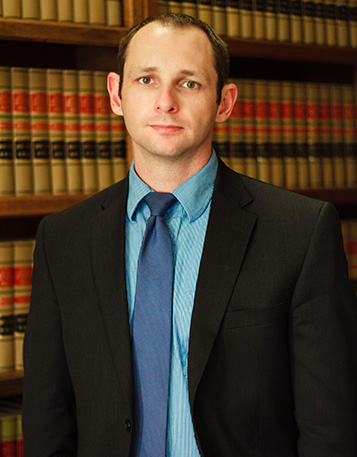
Contact James Today
Evading Arrest in Texas
Fort Worth Criminal Defense Lawyer
A misunderstanding or frustrated police can lead to charges of evading arrest in Texas. With the increased use of body and patrol-car cameras it would seem these charges would be pretty cut-and-dry. Unfortunately, cameras are often “malfunctioning” or turned off during interaction with law enforcement. Even if the case hinges only on a police officer’s testimony, you need the best criminal defense lawyer you can find for these charges. Prosecutors and jurors are more than willing to simply take a cop’s word.
Whether you are facing a felony or misdemeanor evading charge, you can suffer serious consequences. Very often defending these charges requires independent investigation by your attorney. So, you cannot simply show up to court and hope your evading arrest will be dismissed. The earlier you find your lawyer, the sooner they can begin looking into the facts and circumstances surrounding your arrest. Acting fast is important, because your lawyer can gather evidence that may not be around for very long – video, audio, witness statements.
Texas Penal Code Evading Arrest
The Texas Penal Code § 38.04 is found under Title 8 – Crimes Against Public Administration in Subsection 38 – Obstructing Governmental Operations. Section 38.04 makes it a crime for someone to intentionally flee from a peace officer or federal special investigator, if the officer is trying to lawfully to arrest or detain the person.
“Peace Officer” includes a long list of law enforcement agents. [See Below]
”Federal Special Investigator” also includes a large variety of federal agents. [See Below]
Is Evading Arrest a Felony in Texas?
This depends on how a person evades law enforcement and a person’s criminal history. The charge can be either a misdemeanor or felony. The charge is generally a Class A Misdemeanor. However, the charge can be a felony in the following circumstances. State Jail Felony
- You have a prior conviction for evading arrest.
- Punishable by 180 days to 2 years in TDCJ – State Jail Division; and up to $10,000 fine
Third Degree Felony
- You use a vehicle or watercraft while fleeing from police;
- You use a vehicle or watercraft while fleeing from police, and you have a prior conviction for evading arrest;
- Someone is badly injured (serious bodily injury) resulting from your attempt to evade law enforcement; or
- You use a tire deflation device while fleeing from law enforcement.
- Punishable by 2 to 10 years in TDCJ – Institutional Division (prison); and up to a $10,000 fine.
Second Degree Felony
- Someone dies as a result of an attempt to flee law enforcement.
- You use a tire deflation device and someone is badly hurt (serious bodily injury) as a direct result of an attempt to flee from law enforcement.
- Punishable by 2 to 20 years in TDCJ – Institutional Division (prison); and up to a $10,000 fine.
Fort Worth Criminal Defense Lawyer
We provide aggressive and comprehensive defense for those accused of evading arrest or any criminal charge. Call James Luster at his Fort Worth law office to schedule a free and confidential consultation.
Important Definitions
A "tire deflation device" impedes or stops wheel movement of a vehicle by puncturing tire(s) when driven over – this includes a “caltrop” or spike strip. Tire deflation device does not include: a “traffic control device” designed to puncture tires when driven over in a specific direction if a clearly visible sign is posted near the traffic control device that says entry is prohibited or warns of the device.
WHO ARE PEACE OFFICERS?
Texas Code of Criminal Procedure Article 2.12 The following are peace officers: (1) sheriffs, their deputies, and those reserve deputies who hold a permanent peace officer license issued under Chapter 1701, Occupations Code; (2) constables, deputy constables, and those reserve deputy constables who hold a permanent peace officer license issued under Chapter 1701, Occupations Code; (3) marshals or police officers of an incorporated city, town, or village, and those reserve municipal police officers who hold a permanent peace officer license issued under Chapter 1701, Occupations Code; (4) rangers, officers, and members of the reserve officer corps commissioned by the Public Safety Commission and the Director of the Department of Public Safety; (5) investigators of the district attorneys', criminal district attorneys', and county attorneys' offices; (6) law enforcement agents of the Texas Alcoholic Beverage Commission; (7) each member of an arson investigating unit commissioned by a city, a county, or the state; (8) officers commissioned under Section 37.081, Education Code, or Subchapter E, Chapter 51, Education Code; (9) officers commissioned by the General Services Commission; (10) law enforcement officers commissioned by the Parks and Wildlife Commission; (11) airport police officers commissioned by a city with a population of more than 1.18 million located primarily in a county with a population of 2 million or more that operates an airport that serves commercial air carriers; (12) airport security personnel commissioned as peace officers by the governing body of any political subdivision of this state, other than a city described by Subdivision (11), that operates an airport that serves commercial air carriers; (13) municipal park and recreational patrolmen and security officers; (14) security officers and investigators commissioned as peace officers by the comptroller; (15) officers commissioned by a water control and improvement district under Section 49.216, Water Code; (16) officers commissioned by a board of trustees under Chapter 54, Transportation Code; (17) investigators commissioned by the Texas Medical Board; (18) officers commissioned by: (A) the board of managers of the Dallas County Hospital District, the Tarrant County Hospital District, the Bexar County Hospital District, or the El Paso County Hospital District under Section 281.057, Health and Safety Code; (B) the board of directors of the Ector County Hospital District under Section 1024.117, Special District Local Laws Code; and (C) the board of directors of the Midland County Hospital District of Midland County, Texas, under Section 1061.121, Special District Local Laws Code; (19) county park rangers commissioned under Subchapter E, Chapter 351, Local Government Code; (20) investigators employed by the Texas Racing Commission; (21) officers commissioned under Chapter 554, Occupations Code; (22) officers commissioned by the governing body of a metropolitan rapid transit authority under Section 451.108, Transportation Code, or by a regional transportation authority under Section 452.110, Transportation Code; (23) investigators commissioned by the attorney general under Section 402.009, Government Code; (24) security officers and investigators commissioned as peace officers under Chapter 466, Government Code; (25) officers appointed by an appellate court under Subchapter F, Chapter 53, Government Code; (26) officers commissioned by the state fire marshal under Chapter 417, Government Code; (27) an investigator commissioned by the commissioner of insurance under Section 701.104, Insurance Code; (28) apprehension specialists and inspectors general commissioned by the Texas Juvenile Justice Department as officers under Sections 242.102 and 243.052, Human Resources Code; (29) officers appointed by the inspector general of the Texas Department of Criminal Justice under Section 493.019, Government Code; (30) investigators commissioned by the Texas Commission on Law Enforcement under Section 1701.160, Occupations Code; (31) commission investigators commissioned by the Texas Private Security Board under Section 1702.061, Occupations Code; (32) the fire marshal and any officers, inspectors, or investigators commissioned by an emergency services district under Chapter 775, Health and Safety Code; (33) officers commissioned by the State Board of Dental Examiners under Section 254.013, Occupations Code, subject to the limitations imposed by that section; (34) investigators commissioned by the Texas Juvenile Justice Department as officers under Section 221.011, Human Resources Code; and (35) the fire marshal and any related officers, inspectors, or investigators commissioned by a county under Subchapter B, Chapter 352, Local Government Code.
[divider_top]
WHO ARE FEDERAL SPECIAL INVESTIGATORS?
Texas Code of Criminal Procedure Article 2.122 The following named criminal investigators of the United States shall not be deemed peace officers, but shall have the powers of arrest, search, and seizure under the laws of this state as to felony offenses only: (1) Special Agents of the Federal Bureau of Investigation; (2) Special Agents of the Secret Service; (3) Special Agents of the United States Immigration and Customs Enforcement; (4) Special Agents of the Bureau of Alcohol, Tobacco, Firearms and Explosives; (5) Special Agents of the United States Drug Enforcement Administration; (6) Inspectors of the United States Postal Inspection Service; (7) Special Agents of the Criminal Investigation Division of the Internal Revenue Service; (8) Civilian Special Agents of the United States Naval Criminal Investigative Service; (9) Marshals and Deputy Marshals of the United States Marshals Service; (10) Special Agents of the United States Department of State, Bureau of Diplomatic Security; (11) Special Agents of the Treasury Inspector General for Tax Administration; (12) Special Agents of the Office of Inspector General of the United States Social Security Administration; (13) Special Agents of the Office of Inspector General of the United States Department of Veterans Affairs; and (14) a police officer with the Office of Security and Law Enforcement of the United States Department of Veterans Affairs.



